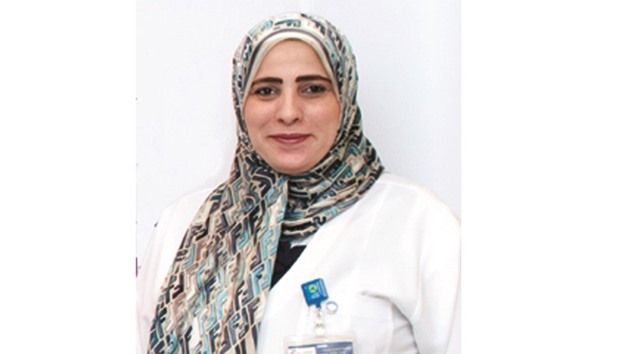A misdiagnosis of Type 1 and Type 2 diabetes can have serious consequences, Hamad Medical Corporation (HMC) has cautioned.
Type 1 and Type 2 diabetes result in high blood sugar and can have many of the same symptoms and long-term consequences but the treatment strategies are different for both.
A misdiagnosis could have had fatal consequences for one Qatari man, but today his story is an example of the important role HMC National Diabetes Centre is playing in helping patients manage their disease.
Ali, a 35-year old Qatari man with Down’s syndrome, was initially diagnosed with Type 2 diabetes by his local doctor after complaining of fatigue and increased thirst. A blood test confirmed he was diabetic and Ali was prescribed oral hypoglycemic drugs. Oral hypoglycemic agents are the group of drugs taken to lower the blood glucose level of a person with Type 2 diabetes; the medication is rarely used to treat Type 1 diabetes.
In February, Ali was admitted to Hamad General Hospital’s Emergency Department with diabetic ketoacidosis and diagnosed with Type 1 diabetes. Diabetic ketoacidosis is a serious condition that can lead to a diabetic coma or even death. It occurs when the body cannot use glucose as a fuel source and instead uses fat for energy. As a result, chemicals called ketones build up in the blood and urine. In high levels, ketones are poisonous.
“Doctors who do not specialise in the diagnosis and treatment of diabetes are not always aware of the possibility of adult-onset Type 1 diabetes. Some adult patients who present with symptoms such as frequent urination and extreme thirst are misdiagnosed with Type 2 diabetes. This is particularly common when the patient is overweight or has a family history of diabetes,” said Manal Othman, director of Diabetes Education at HMC.
Upon discharge from the Emergency Department, Ali began working with a physician, dietitian and patient educator at HGH’s National Diabetes Centre. He was given more information about the insulin regime started in the Emergency Department and received guidance and education on an appropriate meal plan.
“For both Type 1 and Type 2 diabetes, our first priority is helping the patient understand their condition and also the treatment. For patients who require insulin injections, we help them learn the proper technique and also how to store their insulin and dispose of needles,” said Othman.
According to Othman, diabetes treatment is individual and can vary greatly from patient to patient. She said one aspect that remains the same is the team effort with which the clinicians at the National Diabetes Centre approach patient care. According to Othman, the goal of the National Diabetes Centre is to provide patients with the guidance and support required to manage their own health. She said that patients are the most important actor in managing their own care.

Manal Othman
